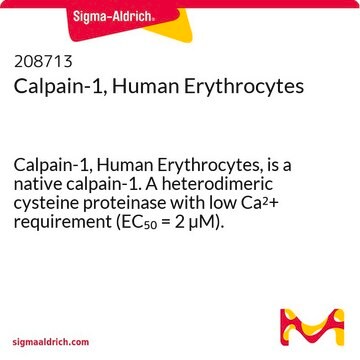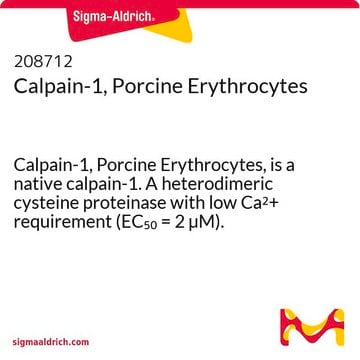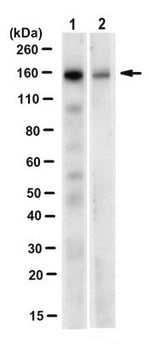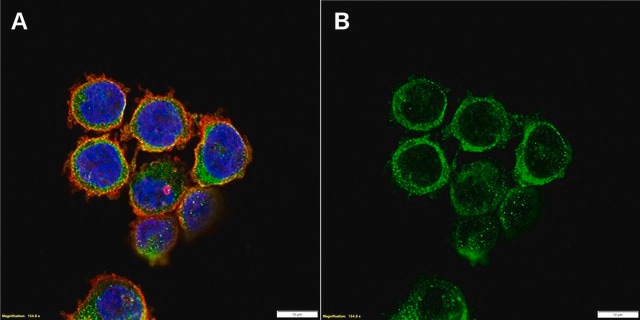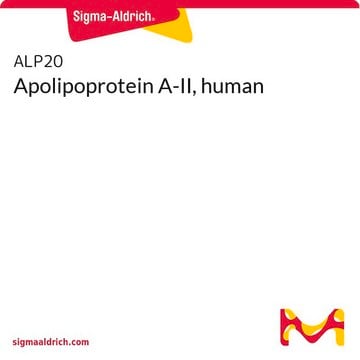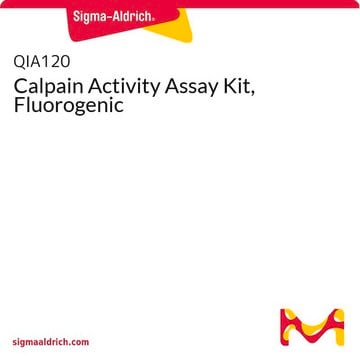RAB1091
Human TREM-2 ELISA Kit
for cell culture supernatants, plasma, and serum samples
Synonym(s):
TREM2, Triggering receptor expressed on myeloid cells 2
Sign Into View Organizational & Contract Pricing
All Photos(1)
About This Item
UNSPSC Code:
41116158
NACRES:
NA.84
Recommended Products
species reactivity
human
packaging
kit of 96 wells (12 strips x 8 wells)
technique(s)
ELISA: suitable
input
sample type serum sample(s)
sample type plasma
sample type cell culture supernatant(s)
assay range
inter-assay cv: <12%
intra-assay cv: <10%
sensitivity: 28 pg/ml
detection method
colorimetric
shipped in
wet ice
storage temp.
−20°C
Gene Information
human ... TREM2(54209)
General description
This ELISA antibody pair detects human TREM-2. Other species not yet determined.
Application
For research use only. Not for use in diagnostic procedures.
Please refer to the attached Protocolfor details.
Please refer to the attached Protocolfor details.
Other Notes
A sample Certificate of Analysis is available for this product. Please type the word sample in the text box provided for lot number.
Signal Word
Warning
Hazard Statements
Precautionary Statements
Hazard Classifications
Met. Corr. 1
Storage Class Code
8A - Combustible corrosive hazardous materials
Flash Point(F)
Not applicable
Flash Point(C)
Not applicable
Choose from one of the most recent versions:
Already Own This Product?
Find documentation for the products that you have recently purchased in the Document Library.
Megan M Varnum et al.
The Journal of biological chemistry, 292(25), 10651-10663 (2017-05-12)
Triggering receptor expressed on myeloid cells 2 (TREM2) is a single transmembrane molecule uniquely expressed in microglia. TREM2 mutations are genetically linked to Nasu-Hakola disease and associated with multiple neurodegenerative disorders, including Alzheimer's disease. TREM2 may regulate microglial inflammation and
Weigang Cui et al.
Frontiers in neuroscience, 14, 444-444 (2020-06-09)
Accumulating evidence has indicated that activation of microglia and neuroinflammation reaction play a prominent role in Alzheimer's disease (AD). Inhibition of toll-like receptor 4 (TLR4) has been shown to be associated with immune responses and brain damage, but its effects
Takayuki Inoue et al.
Proceedings of the National Academy of Sciences of the United States of America, 116(20), 10031-10038 (2019-05-01)
Cerebral amyloid angiopathy (CAA) results from amyloid-β deposition in the cerebrovasculature. It is frequently accompanied by Alzheimer's disease and causes dementia. We recently demonstrated that in a mouse model of CAA, taxifolin improved cerebral blood flow, promoted amyloid-β removal from
Our team of scientists has experience in all areas of research including Life Science, Material Science, Chemical Synthesis, Chromatography, Analytical and many others.
Contact Technical Service